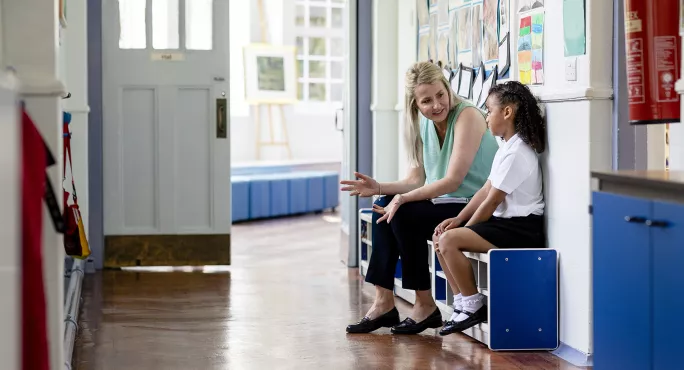Children could “slip out of education” because schools are increasingly using part-time timetables to manage some pupils’ behaviour, Ofsted chief inspector Amanda Spielman is set to warn.
This finding is expected to be included as part of her latest annual report for the 2021-22 academic year, which is being published tomorrow.
Ofsted will warn that part-time timetabling is “too often” being used by schools that are unable to manage a child’s additional needs or behavioural problems.
The inspectorate said that sometimes schools have told inspectors that they see this as an alternative to having to carry out an exclusion.
Inspections have found that children and young people with special educational needs and disabilities (SEND) are more likely to be placed on part-time timetables.
The watchdog will say that moving a child out of full-time education in this way may not be in the best interests of the child involved, even if it may be in the best interests of the school.
The watchdog will also warn that if it is being used as a way to exclude a child, it may be unlawful.
Its latest annual report will warn that there is anecdotal evidence that part-time timetables are being used more regularly in schools.
Speaking ahead of the report’s publication, Amanda Spielman said: “In very exceptional circumstances, part-time timetables can be used temporarily to support a child’s individual needs.
“However, we are seeing that some schools are using them for extended periods of time as a tool to manage pupils’ behaviour.
“I’m concerned that it is often the most vulnerable children who are subject to this practice. Children who are only in school part of the time become isolated socially and will find it difficult to get back into a routine.
“Part-time timetabling is simply another avenue by which children can slowly slip out of education.”
In response to Ofsted’s concerns, Geoff Barton, general secretary of the Association of School and College Leaders, said: ”I think what we all have in common is that we agree that the place for children to be is in schools. And it is right to say that a part-time timetable should only ever be a short-term solution.
“But I think it is important to recognise that it is difficult to see what the long-term solution will be for many schools when they can no longer afford to employ or call upon staff whose job it is to work with pupils on behaviour or to support attendance.”
Mr Barton said that Ofsted was identifying “a system problem rather than a school problem” and said that it could be seen as a symptom of the way in which education support services available to schools have fallen away.
Ofsted has previously highlighted off-rolling - which it has defined as removing a child from the school roll when this is being done in the school’s interest, rather than that of the child - in its inspection reports.
The watchdog is now concerned that the Covid pandemic has obscured trends in exclusions and off-rolling, meaning it is harder to know the extent to which it is still a problem.




